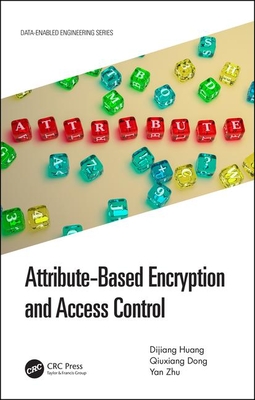Attribute-Based Encryption (Abe): Foundations and Applications Within Blockchain and Cloud Environments
暫譯: 基於屬性的加密(Abe):區塊鏈與雲端環境中的基礎與應用
Xia, Qi, Gao, Jianbin, Obiri, Isaac Amankona
- 出版商: Wiley
- 出版日期: 2023-10-24
- 售價: $4,570
- 貴賓價: 9.8 折 $4,478
- 語言: 英文
- 頁數: 272
- 裝訂: Hardcover - also called cloth, retail trade, or trade
- ISBN: 1119989353
- ISBN-13: 9781119989356
-
相關分類:
區塊鏈 Blockchain
海外代購書籍(需單獨結帳)
商品描述
Enables readers to understand applications of attribute-based encryption schemes in cloud computing with the support of blockchain technology
With a focus on blockchain technology, Attribute-based Encryption (ABE) provides insight into the application of attribute-based encryption (ABE) schemes with blockchain, discussing types of blockchains, fundamentals of blockchain, and how blockchains are constructed.
Comprised of 16 chapters, the text provides readers with an overview of the components that go into creating a dual ABE system of encryption proofs within the following: composite bilinear groups, dual pairing vector space framework, matrix pairing framework, framework for matrix pairing, and the application of cryptographic scheme on blockchain. The team of authors discuss the basic construction components of ABE and share the security models, including the selective and semi-adaptive security models, applying these to either prime order or composite order groups.
This book also discusses the tools used for converting a composite order ABE scheme to prime order and an adaptive secure ABE scheme based on prime order.
In Attribute-based Encryption (ABE), readers can expect to find information on:
- Mathematical background of ABE, covering group and cyclic group, elliptic curves, curve selection, supersingular curves, ordinary curves, and weil and tate pairing
- Basic construction components of ABE, covering access structure, monotone boolean formula, linear secret-sharing scheme, and ordered binary decision diagram
- Tools for converting composite order ABE schemes to prime order, covering security assumptions and conversion based on vectors for preliminaries, scheme construction, and security proof technique
- Foundations of blockchain technology, covering blocks, miners, hash functions, and public key cryptography
Attribute-based Encryption (ABE) is an essential resource for professionals working in the field of design and cybersecurity who wish to understand how to use blockchain and the ABE scheme to provide fine-grained access control in outsourced data on third-party cloud servers.
商品描述(中文翻譯)
使讀者了解基於屬性的加密方案在雲端計算中的應用,並結合區塊鏈技術的支持
本書專注於區塊鏈技術,基於屬性的加密 (ABE) 提供了基於屬性的加密 (ABE) 方案與區塊鏈應用的見解,討論區塊鏈的類型、區塊鏈的基本原理以及區塊鏈的構建方式。
本書由16章組成,為讀者提供了創建雙重 ABE 加密證明系統所需組件的概述,包括:複合雙線性群、雙配對向量空間框架、矩陣配對框架、矩陣配對的框架,以及加密方案在區塊鏈上的應用。作者團隊討論了 ABE 的基本構建組件,並分享了安全模型,包括選擇性和半自適應安全模型,並將其應用於質數階或複合階群。
本書還討論了將複合階 ABE 方案轉換為質數階和基於質數階的自適應安全 ABE 方案所使用的工具。
在 基於屬性的加密 (ABE) 中,讀者可以期待找到以下資訊:
- ABE 的數學背景,涵蓋群和循環群、橢圓曲線、曲線選擇、超奇異曲線、普通曲線,以及 Weil 和 Tate 配對
- ABE 的基本構建組件,涵蓋訪問結構、單調布林公式、線性秘密共享方案和有序二元決策圖
- 將複合階 ABE 方案轉換為質數階的工具,涵蓋安全假設和基於向量的轉換初步、方案構建和安全證明技術
- 區塊鏈技術的基礎,涵蓋區塊、礦工、哈希函數和公鑰加密
基於屬性的加密 (ABE) 是設計和網絡安全領域專業人士的重要資源,幫助他們理解如何使用區塊鏈和 ABE 方案在第三方雲伺服器上提供精細的訪問控制。
作者簡介
Qi Xia received her PhD in Computer Science from the University of Electronic Science and Technology of China in 2010.
Jianbin Gao received his PhD in Computer Science from the University of Electronic Science and Technology of China (UESTC) in 2012.
Isaac Amankona Obiri received his Master's and PhD in Computer Science and Technology from the University of Electronic Science and Technology of China.
Kwame Omono Asamoah received his Master's and PhD in Computer Science and Technology from the University of Electronic Science and Technology of China.
Daniel Adu Worae currently pursuing his Master's degree in Computer Science and Technology at the University of Electronic Science and Technology of China.
作者簡介(中文翻譯)
齊霞於2010年在中國電子科技大學獲得計算機科學博士學位。
高建斌於2012年在中國電子科技大學(UESTC)獲得計算機科學博士學位。
艾薩克·阿曼科納·奧比里在中國電子科技大學獲得計算機科學與技術的碩士及博士學位。
夸梅·奧莫諾·阿薩莫阿在中國電子科技大學獲得計算機科學與技術的碩士及博士學位。
丹尼爾·阿杜·沃拉埃目前在中國電子科技大學攻讀計算機科學與技術的碩士學位。










